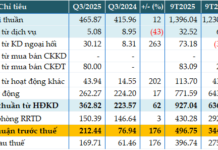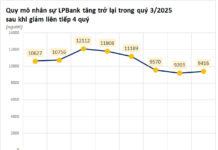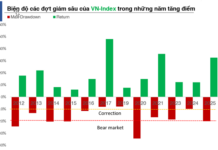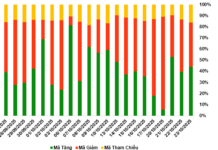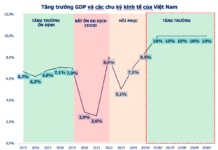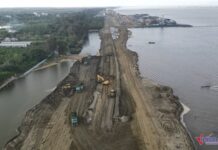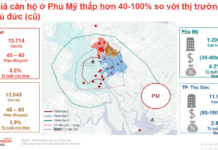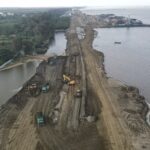One of the most significant points of the 2024 Land Law is the removal of the old land price framework and its replacement with a system that considers various factors such as purpose, land use duration, input information, and other influencing factors to determine the price.
The new land price schedule will closely follow market prices, leading to increased site clearance costs, land compensation, and taxes and fees related to land. The application of the new regulations tends to increase compensation costs, leading to possible difficulties for enterprises in negotiating land clearance with citizens.
The leader of a real estate company in Hanoi said that his company currently has two projects delayed for more than ten years due to inability to clear the site. One of the projects has almost completed compensation, with only about seven households disagreeing and asking for an extremely high price.
” Some families demanded a price increase of up to ten times the compensation price ten years ago, and some families refused to meet with the enterprise to negotiate because they saw the current high land prices,” he said. We have proposed several options for people to choose from, such as accepting a higher price but not ten times higher or exchanging land in a similar location… but they know the company’s difficulties, so they still force the price,” he added.
Therefore, he worries that compensation with the land price framework is already very challenging, and removing the land price framework may further prolong the site clearance process.

When the Land Law takes effect, land compensation prices will increase if enterprises want to develop the land. (Illustrative image: Minh Duc)
Sharing the same view, Mr. Pham Duc Toan, General Director of EZ Property, also said that removing the land price framework would somehow make it difficult for enterprises and require the State to be strong enough financially to take charge of land retrieval and then organize auctions and bid again for “clean” land areas for enterprises.
Mr. Toan illustrated that, in reality, there are small-scale projects with only a few dozen households, and land retrieval is already challenging, so it is more complex with projects involving thousands of households. There is a situation where a group of investors buys land in advance when they know the planning and then ask for an extremely high price when the enterprise comes to work. Therefore, some localities even prohibit working with this group of investors.
Mr. Vu Cuong Quyet, CEO of Dat Xanh Northern, also said that with the three new laws related to the real estate market taking effect, investors would have a basis to offer higher compensation prices than before without depending on the land price framework. Therefore, the progress of site clearance may speed up, but it is not easy to self-agree with the people.
” Site clearance compensation under a self-agreement mechanism will be difficult for investors at some point. Investors offer high prices, and people may demand even higher prices. So, we can quickly reach an agreement with 80% but are stuck with the remaining 20%. Therefore, although we agree to offer higher prices, self-negotiating is still very challenging,” Mr. Quyet emphasized.
According to Mr. Quyet, previously, many enterprises also had to compensate at prices higher than the land price framework, but these costs were not deductible. The benefit of the three new laws taking effect is that enterprises can recognize these costs more realistically, and negotiating with the people still depends on the negotiating capacity of the investors.
Mr. Giang Anh Tuan, Director of Tuan Anh Real Estate Floor, shared that there are projects with an enormous number of households in compensation for site clearance, so negotiating and determining the price takes a long time. Not to mention, compensation occurs during the “land fever” period, and the continuously fluctuating prices make those compensated earlier feel disadvantaged and file lawsuits demanding higher prices, causing difficulties for enterprises.
Commenting on the impact of the three real estate laws on site clearance compensation, Mr. Nguyen Anh Que, a member of the Vietnam Real Estate Association, said that the real estate market in the coming time would only be suitable for enterprises with real financial potential.
” Currently, the story of capital flow in the market is still a challenging problem. Banks only lend to real estate projects with construction permits. Borrowing capital for site clearance, land use conversion, and tax payment is not easy.
Binh Duong: Land prices to increase up to 247% from current prices.
If passed, the proposed Resolution will result in an increase in land prices in Binh Duong province, ranging from a minimum of 11% to a maximum of 247% compared to the current prices. This adjustment is aimed at aligning the land prices with the current reality, as some communes are upgraded to wards and towns.
Removing Land Policy Bottlenecks, Creating New Resources for Development
The passing of the Land Law by the National Assembly has been well-received by society, with expectations that policy barriers and bottlenecks will be quickly dismantled and eliminated. This will effectively utilize land resources, contributing to the creation of new resources that will promote socio-economic development…
Quick evaluation report on the impact of Land Law amendment (2024) and some recommendations
The revised Land Law (2024) is considered a crucial legal project by the team led by Dr. Can Van Luc and the authors from BIDV Training and Research Institute. It covers various aspects of political, socio-economic, cultural, defense, and security domains, and it affects most economic entities. The team of experts has identified 10 new points that will have an impact on citizens, businesses, and the economy.







